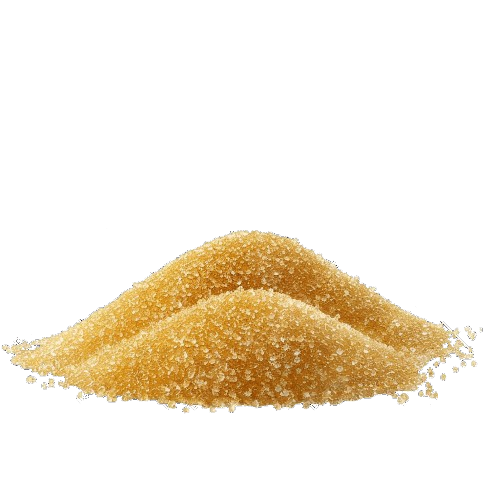
Ion Exchange Resins in Meghalaya

Ion exchange resins are insoluble, porous, polymer-based materials that contain active functional groups capable of exchanging ions with those in a surrounding liquid. They are typically made from cross-linked polystyrene and functionalized with ion-exchange groups such as sulfonic acid (for cation exchange) or quaternary ammonium groups (for anion exchange). These resins work by replacing undesirable ions in a solution (such as calcium, magnesium, or nitrate) with more desirable ones (such as sodium, hydrogen, or hydroxide). They are widely used in water softening, demineralization, wastewater treatment, food and beverage processing, pharmaceuticals, and chemical industries. Ion exchange resins are usually available in the form of small, spherical beads that provide a large surface area for effective ion exchange. They are stable, reusable, and can be regenerated for multiple cycles of use.
|
High Ion Exchange Capacity |
Can efficiently remove or replace unwanted ions from liquids. |
|
Selectivity |
Different resins are designed to selectively exchange specific ions (e.g., hardness-causing ions, nitrates, heavy metals). |
|
Regenerability |
Can be regenerated multiple times using appropriate regenerants (like acids, bases, or salt solutions). |
|
Porous Structure |
Small spherical beads with a large surface area ensure effective ion transfer. |
|
Durability |
Chemically and mechanically stable, suitable for long-term use in industrial and domestic applications. |
|
Thermal and Chemical Stability |
Withstands a wide range of pH and temperature conditions depending on resin type. |
|
Variety of Types |
Available as cation exchange resins, anion exchange resins, and mixed-bed resins for different applications. |
|
Reusability |
Can undergo many operating cycles before replacement is needed. |
|
Versatility |
Used in water softening, demineralization, wastewater treatment, pharmaceuticals, food processing, and catalysis. |
|
Safety |
Non-toxic and safe for use in potable water and food-related industries (when food-grade resins are used). |